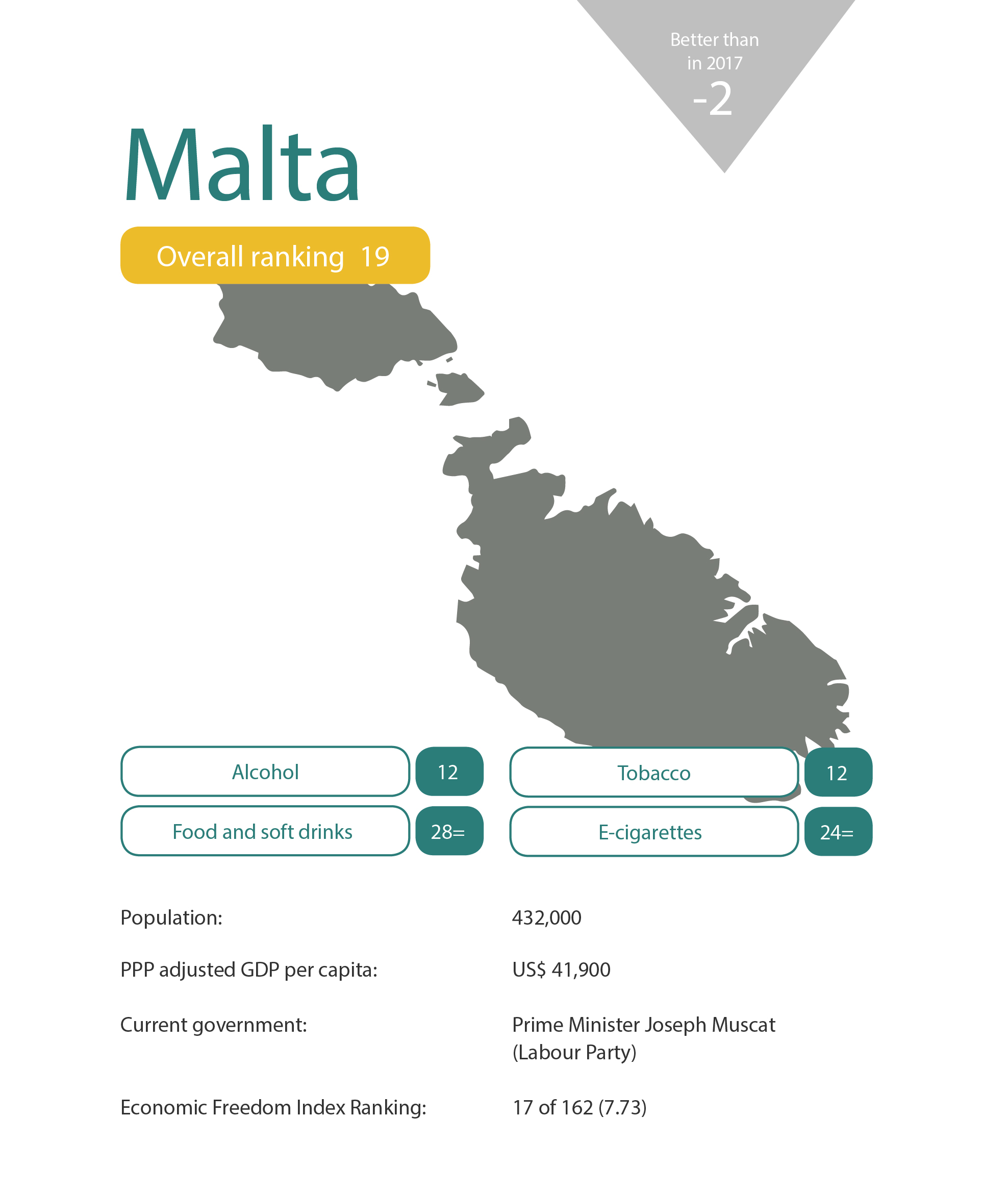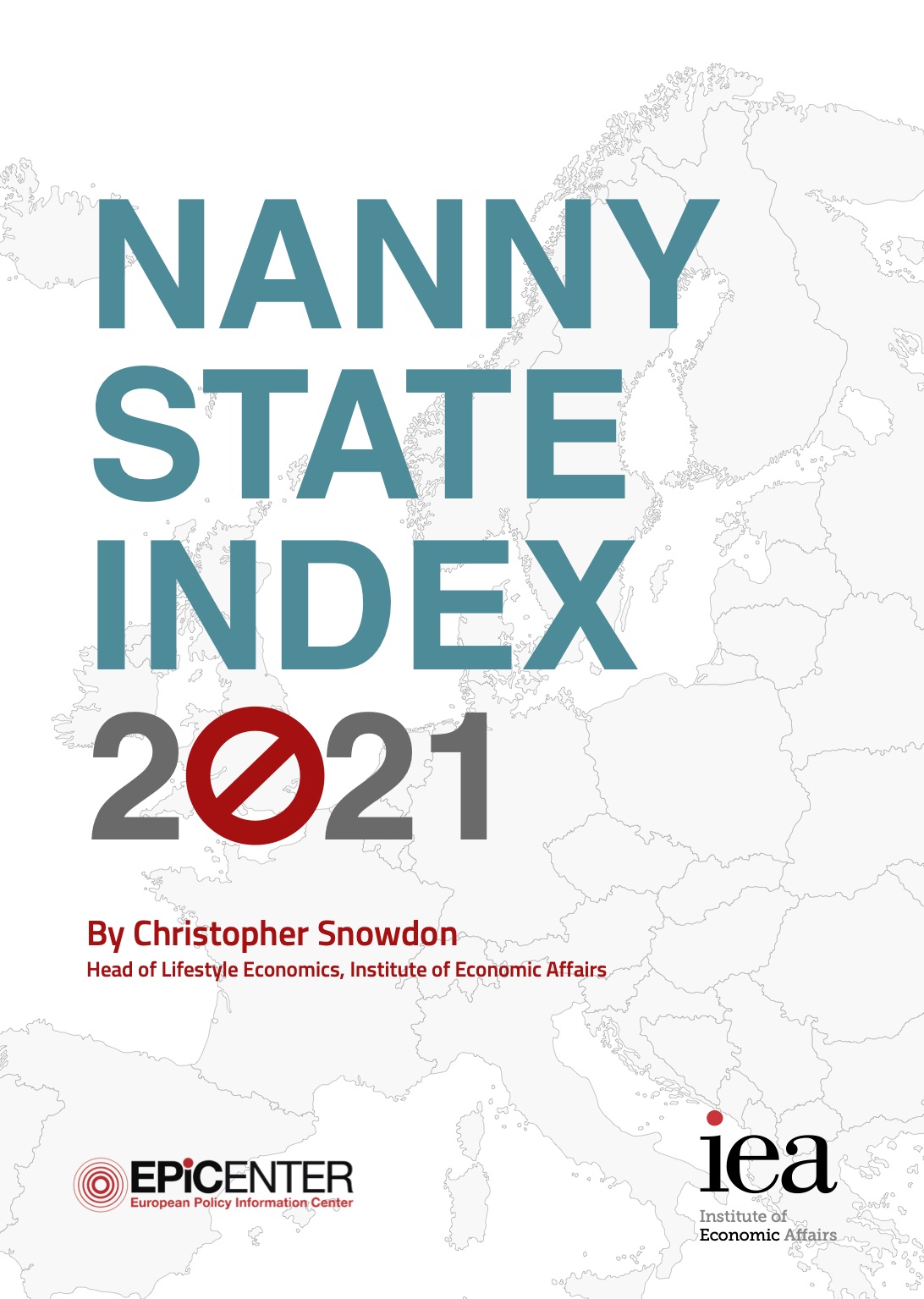
Malta is not a great country for drinkers, smokers or vapers, at least in theory. It was one of the first countries in the world to ban smoking indoors (in 2004) and the legislation was toughened up in 2013 to make it among Europe’s most draconian ‘smoke-free’ laws. In practice, the ban is widely ignored except in restaurants. Smoking (and vaping) in cars with passengers aged under 18 was banned in January 2017 with fines of €50.
Alcohol commercials cannot be broadcast before 9pm and there is a total ban on tobacco and e-cigarette advertising. There is no excise tax on vape juice and cross-border sales of e-cigarettes are legal.
Vaping is relatively common in Malta, but there has been confusion about whether e-cigarettes, which are regulated as tobacco products on the island, are banned in public places. Some health groups have claimed that they are but, in 2015, a woman who had been fined €233 for vaping in an enclosed place had her conviction overturned on appeal. The court confirmed that the smoking ban only applies to tobacco products, not e-cigarettes.
Tobacco duty is high but taxes on beer and spirits are about average for an EU country. A tax on wine was introduced for the first time in 2015, at a rate of €0.15 per bottle. In 2018, Malta reduced its drink-driving limit to the EU average of 0.05g of alcohol per litre of blood. It is one of only two EU countries to have a prohibition on heat-not-burn tobacco products.
About
The Nanny State Index (NSI) is a league table of the worst places in Europe to eat, drink, smoke and vape. The initiative was launched in March 2016 and was a media hit right across Europe. It is masterminded and led by IEA’s Christopher Snowdon with partners from all over Europe.
Enquiries: info@epicenternetwork.eu
Download Publication

Previous version: 2019
Categories
About the Editor
Christopher Snowdon is the head of Lifestyle Economics at the Institute of Economic Affairs. His research focuses on lifestyle freedoms, prohibition and policy-based evidence. He is a regular contributor to the Spectator, Telegraph and Spiked and often appears on TV and radio discussing social and economic issues.
Snowdon’s work encompasses a diverse range of topics including ‘sin taxes’, state funding of charities, happiness economics, ‘public health’ regulation, gambling and the black market. Recent publications include ‘Drinking, Fast and Slow’, ‘The Proof of the Pudding: Denmark’s Fat Tax Fiasco’, ‘A Safer Bet’, and ‘You Had One Job’. He is also the author of ‘Killjoys’ (2017), ‘Selfishness, Greed and Capitalism’ (2015), ‘The Art of Suppression’ (2011), ‘The Spirit Level Delusion’ (2010), ‘Velvet Glove, Iron Fist’ (2009).
Malta 2019

Malta is not a great country for drinkers, smokers or vapers, at least in theory. It was one of the first countries in the world to ban smoking indoors (in 2004) and the legislation was toughened up in 2013 to make it among Europe’s most draconian ‘smoke-free’ laws. In practice, the ban is widely ignored except in restaurants. Smoking (and vaping) in cars with passengers aged under 18 was banned in January 2017 with fines of €50.
Alcohol commercials cannot be broadcast before 9pm and there is a total ban on tobacco and e-cigarette advertising. There is no excise tax on vape juice and cross-border sales of e-cigarettes are legal.
Vaping is relatively common in Malta, but there has been confusion about whether e-cigarettes, which are regulated as tobacco products on the island, are banned in public places. Some health groups have claimed that they are but, in 2015, a woman who had been fined €233 for vaping in an enclosed place had her conviction overturned on appeal. The court confirmed that the smoking ban only applies to tobacco products, not e-cigarettes.
Tobacco duty is high but taxes on beer and spirits are about average for an EU country. A tax on wine was introduced for the first time in 2015, at a rate of €0.15 per bottle. In 2018, Malta reduced its drink-driving limit to the EU average of 0.05g of alcohol per litre of blood. It is one of only two EU countries to have a prohibition on heat-not-burn tobacco products.

 Austria
Austria Belgium
Belgium Bulgaria
Bulgaria Croatia
Croatia Cyprus
Cyprus Czech Republic
Czech Republic Denmark
Denmark Estonia
Estonia Finland
Finland France
France Germany
Germany Greece
Greece Hungary
Hungary Ireland
Ireland Italy
Italy Latvia
Latvia Lithuania
Lithuania Luxembourg
Luxembourg Malta
Malta Netherlands
Netherlands Norway
Norway Poland
Poland Portugal
Portugal Romania
Romania Slovakia
Slovakia Slovenia
Slovenia Spain
Spain Sweden
Sweden Turkey
Turkey United Kingdom
United Kingdom
















